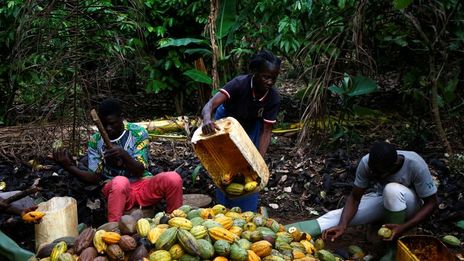Read in
No rain fell last week in most of Ivory Coast’s main cocoa-growing regions and farmers said on Monday that dry weather could hurt bean quality and tighten supplies from February.
The world’s largest cocoa producer is in the dry season from mid-November to March, when rainfall is low.
Farmers said there were enough pods on the trees to be harvested in January, but from February the main October-March crop would start to dwindle.
They said they would start monitoring the development of the April-September mid-crop from January.
Good rains are needed to trigger more flowering and help the transformation into small pods to ensure a good start to the intermediate harvest in April, farmers added.
In the central-western region of Daloa and the central regions of Bongouanou and Yamoussoukro, which received no rainfall last week, farmers expressed concern about the weather conditions.
“We haven’t had a single drop of rain. It’s not good for the end of the main harvest and the beginning of the intermediate harvest,” said Faustin Konan, who farms near Daloa, where no rain fell last week, 3 millimeters (mm) below the five-year average.
Farmers in these areas said the intensity of the dry Harmattan wind had decreased compared to the previous week.
The harmattan, which typically sweeps across the Sahara Desert between December and March, can dry out the soil and damage cocoa pods by making them smaller.
In the western region of Soubre, the southern regions of Agboville and Divo and the eastern region of Abengourou, where there was no rain last week, farmers said that if plantations received good rain every 10 days in January, it could improve the yield and quality of beans from February.
“The weather is very hot, so we need well-distributed rains in January for the trees to produce well,” said Kouassi Kouame, who works near Soubre, where 0mm fell last week, 5.7mm above the five-year average.
Last week, average temperatures in the West African country ranged between 26 and 28.2 degrees Celsius.



